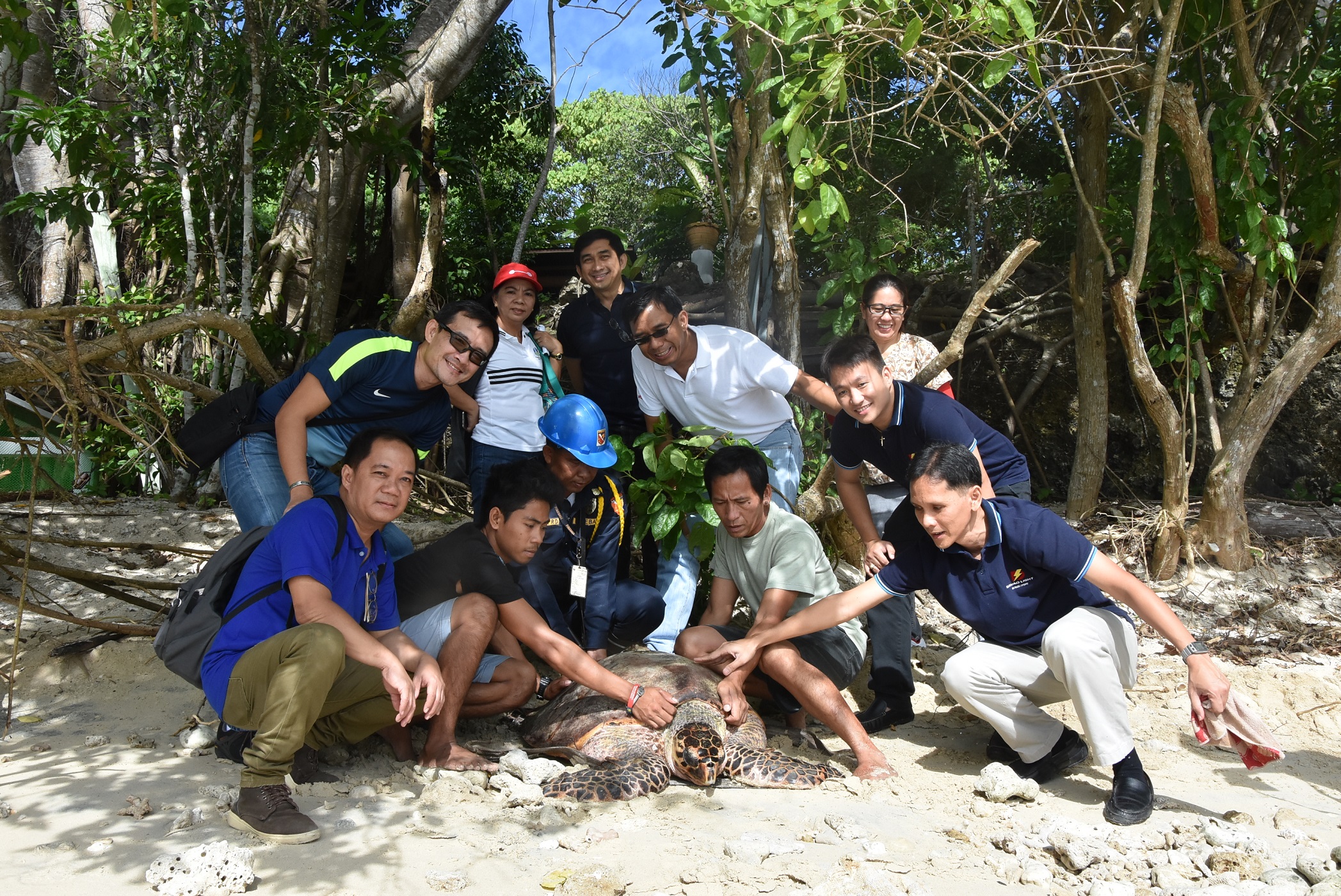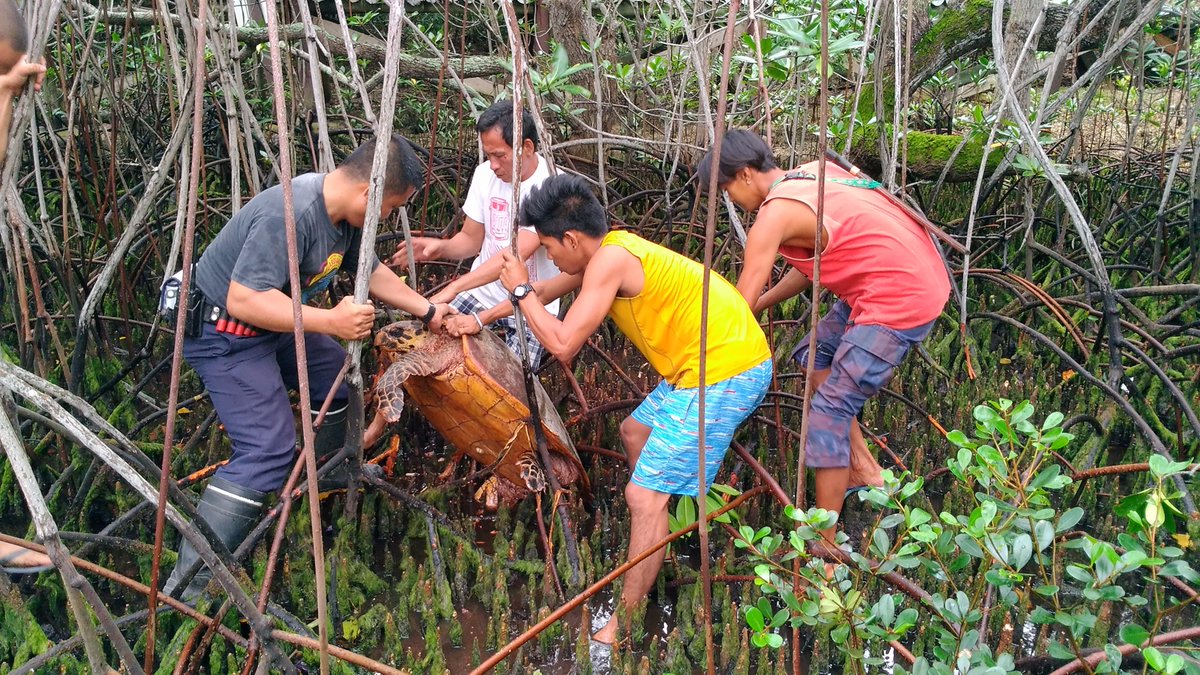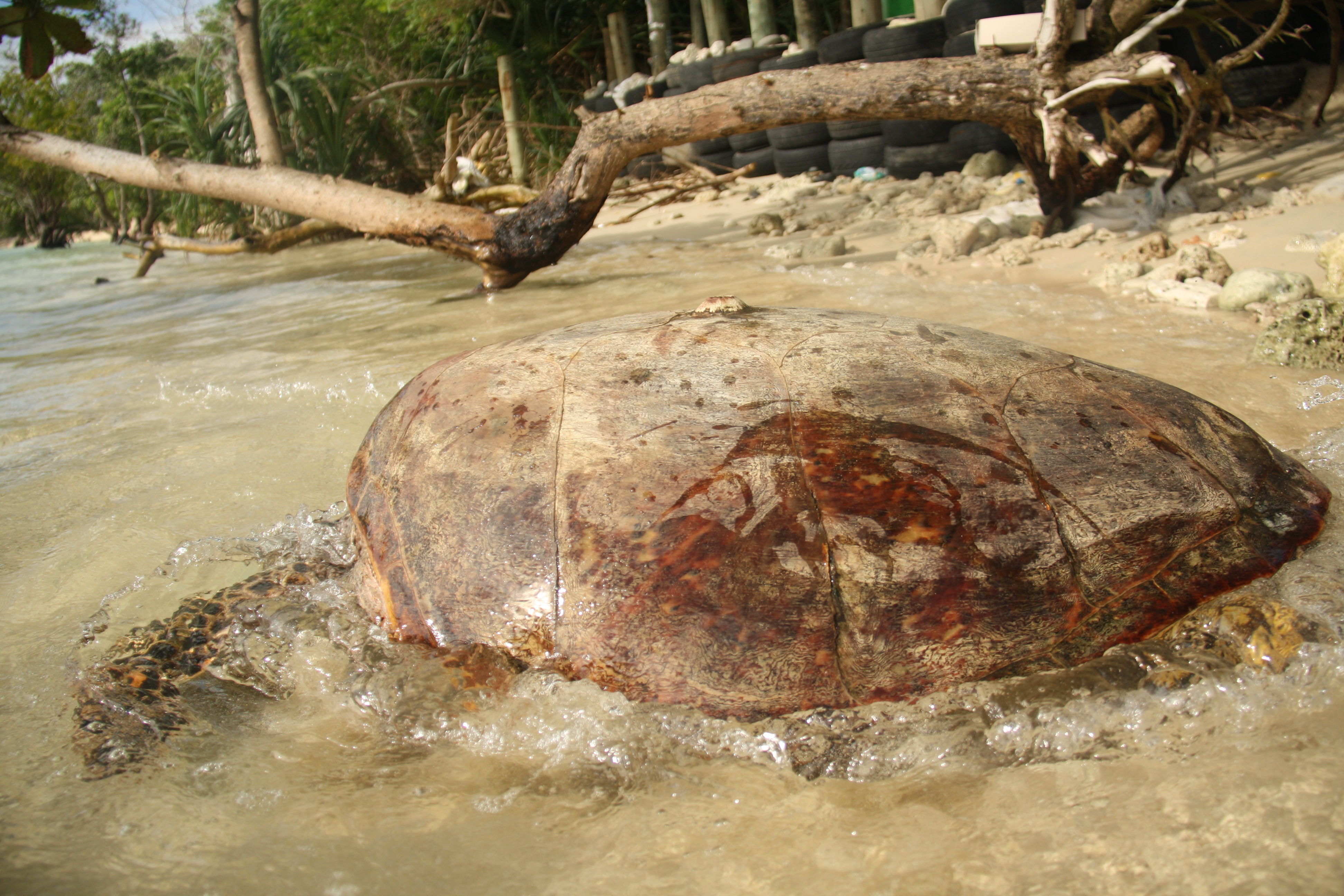Davao Light rescues two Pawikans and releases back to the sea safely
 The Cleanergy Park, which is biodiversity park is a project of Davao Light and Power Co. and the Aboitiz Foundation, located in Sitio Punta Dumalag, Matina Aplaya Davao City continues to be a home to various wildlife. The place has become even more special as it has been a nesting ground for Hawksbill Turtles, an endangered species.
The Cleanergy Park, which is biodiversity park is a project of Davao Light and Power Co. and the Aboitiz Foundation, located in Sitio Punta Dumalag, Matina Aplaya Davao City continues to be a home to various wildlife. The place has become even more special as it has been a nesting ground for Hawksbill Turtles, an endangered species.
Being known to locals as a pawikan sanctuary, last February 24, residents from Brgy. Bucana turned over a Pawikan to the Cleanergy Park for proper handling through Davao Light Community Relations Manager Fermin Edillon. The said pawikan, a Green Sea Turtle, was struggling to free itself from a fisherman's net when it was found.
Meanwhile, in February 25, another Pawikan was found. The huge Pawikan weighing 65 kilograms was trapped at the Cleanergy Park's mangrove area roughly 15 meters away from where another Pawikan nest was found.

The Pawikan is identified to be a Hawksbill turtle and believed to be the mother pawikan that has been laying eggs for four times already in the park since January 10. After being rescued, the said Pawikan was placed in the repository to recuperate from injuries that it got from being trapped in the mangrove roots.
Both turtles were assessed by Dr. Ken Lao of The Ark Veterinary Clinic and the team of the Department of Environment and Natural Resources Region XI. This was also witnessed by the Davao City Council Chairman on the Committee of Environment and Natural Resources, Councilor Diosdado Mahipus.
Finally, after ensuring the good condition and safety of the two Pawikans, the Pawikan rescued in Brgy. Bucana and the one found at the Cleanergy Park Mangrove area were released back to the sea last February 28 and March 1, respectively.
“Davao Light commits for a better world by continuing on its efforts to help save endangered species such as the Hawksbill turtles.” said Edillon.
Davao Light is expecting for the last batch of Pawikan eggs in the next two weeks after the 4th nest was found last February 24. A female pawikan usually lays eggs three to five times in a two-week interval during its mating season. Also, the eggs from the first nest are expected to hatch on either first or second week of March.

